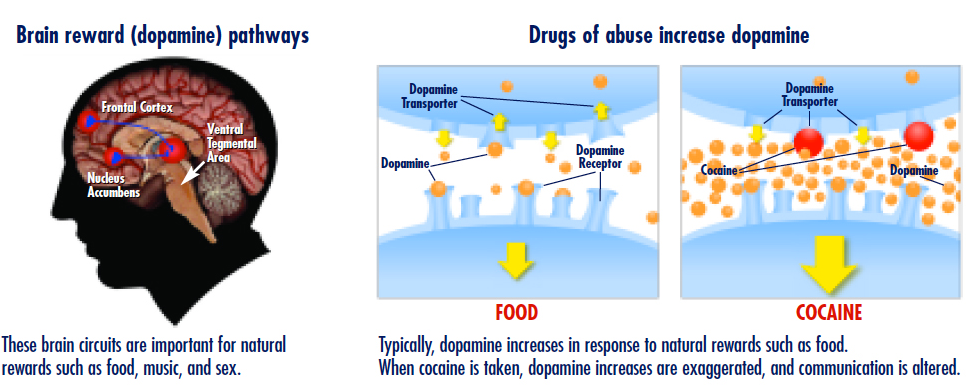Motivation and addiction
The Motivation is the psychological characteristic which arouses an organism to action toward a desired target and controls, elicits and sustains certain motive directed behaviors. For example: An individual has not eaten him/she feels hungry and as a response he or she eats and diminishes feelings of hunger. There are several approaches for motivation that are: behavioural, physiological, social, and cognitive.
It may be rooted in an essential requirement to minimize physical pain and maximize pleasure or it may involve specific requirement such as resting and eating, or for a desired object. Theoretically, motivation is associated to but distinct from emotion. Addiction is the continued use of a mood altering behavior or substance despite adverse addiction consequences or a neurological impairment leading to such behaviors.

Addictions can involve, but are not limited to, drug abuse, alcohol abuse, exercise abuse, gambling. Classic hallmarks of addiction involve: impaired control over substances or behavior, preoccupation with substance or behavior, continued use despite consequences, and denial. Patterns and Habits associated with addiction are typically characterized through immediate gratification short-term reward, coupled with delayed deleterious effects long-term costs.